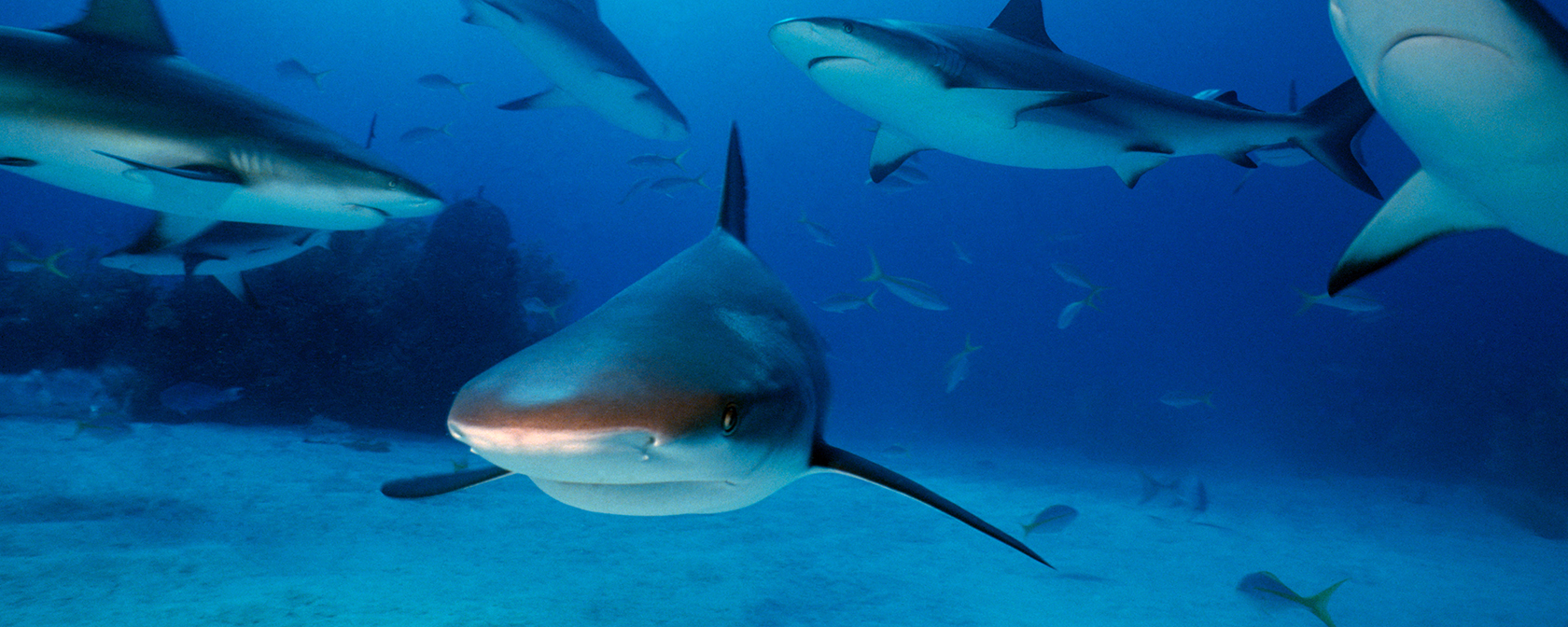By Sara Amundson and Kitty Block
With allies and supporters, we have been doing all that we can to keep more sharks swimming safely in oceans all over the world. For years, we advocated for the passage of the Shark Fin Sales Elimination Act, which President Biden signed into law in December 2022, with strong bipartisan support.
We were pleased that recently the National Oceanic and Atmospheric Administration completed a comprehensive review of the Act’s impact on shark fishing regulations across the United States and discussed enforcement goals with federal law enforcement agencies. Heartened by NOAA’s strong signal of commitment to this lifesaving legislation, we will press for strong enforcement in the years ahead.
Overall, the passage of the Act has reduced the U.S.’s participation in the global shark fin trade. A good example came with NOAA’s 2023 confiscation in Kentucky of more than 176 pounds of dried endangered scalloped hammerhead shark fins (a critically endangered species), 1,058 pounds of dried silky shark fins and 187 pounds of dried bull shark fins that were shipped through a UPS facility. Prior to the passage of the Act, it would have been impossible for law enforcement agencies to carry out an action of this kind.
Notwithstanding, before NOAA’s recent examination of the law’s impacts, enforcement of the Shark Fin Sales Elimination Act was not commensurate with the large scope of continued illicit activities involving detached shark fins. For example, reports indicate that even after the initial ban, some restaurants continued to offer shark fin products illicitly, including shark fin soup. This was largely because smaller quantities of shark fins can be somewhat easily concealed and moved around in cities with higher demand. Moreover, even though the U.S. was not among the largest perpetrators of unsustainable shark catching, its role as a major transshipment location for shark fin sales—along with lack of adequate enforcement—raised major concerns regarding the ultimate effectiveness of the initial ban unless it was coupled with strong enforcement from the federal government.
The Act makes it illegal to possess, buy, sell or transport shark fins or products containing shark fins in the U.S., with limited, narrow exceptions. It built upon previous shark conservation efforts by closing loopholes in existing laws and effectively removing the U.S. from the global shark fin trade by making the sale of fins illegal in the U.S. It was essential to take action, because the U.S. had long served as a major transportation hub for shark fin shipments to other regions, such as South America.
Shark finning is an undeniably cruel practice that involves hacking off sharks’ fins and throwing their mutilated bodies—often still alive—back into the ocean to drown, bleed to death or be devoured by other sea life. Sharks suffer this horrific death for shark fin soup—a luxury dish in some countries. Each year, roughly 73 million sharks are killed for the global shark fin trade, contributing to the dramatic 71% decline in shark and ray populations over the last 50 years.
NOAA’s determination and continued attention to the impacts of the law is important, as it will allow for greater enforcement focusing on the restaurant and trade industries. We thank the agency for its commitment to protecting sharks–apex predators and stewards of our ocean ecosystems—from a cruel death. There was no reason for the U.S. to play a role in the further decline of shark populations. To the contrary, we should be a beacon of hope for the world’s sharks and a leader in efforts to protect them.
Everyone can have a hand in ensuring that sharks are protected, which is why NOAA has a tipline where you can report any possible violations you see.
Kitty Block is CEO of the Humane Society of the United States.




